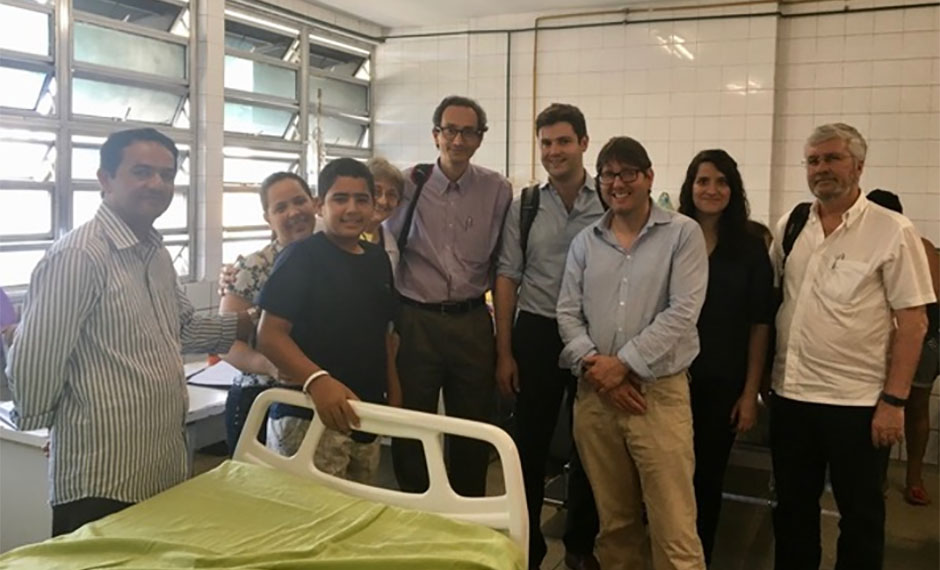September 15, 2017
The Work Package 2 of ZikaPLAN forming the Neuro-Zika Group is working in the field conducting case control studies in Brazil & Colombia with an aim to define the spectrum of neurological disease. Although, there has been a lower incidence of Zika virus this year, progress has been steady with valuable insights gained to date. The team has the largest group of scientists who interact on regular basis and have had successful working group meetings in Liverpool, Glasgow and Rotterdam.
ZikaPLAN Work Package 2
Prof. Tom Solomon, Director, Institute of Infection and Global Health, University of Liverpool, UK
The aim of the ZikaPLAN Work Package 2 (NEURO-Zika: Neurological Manifestations of Zika) is to define the spectrum of neurological diseases associated with Zika virus (ZIKV) infection, in both the central nervous system (CNS) and peripheral nervous system (PNS) of adults and children.

The Neuro-Zika Group has begun its work in the field and is currently conducting a case control study in Brazil to try to determine why Zika causes neurological disease in adults. The research is being carried out in Rio de Janeiro and Recife in 11 hospitals with 177 patients and 276 controls, supported by FioCruz Institute. An additional study is being conducted with collaborators in Colombia, supported by the Neurovirus Emerging in the Americas Study (NEAS) partnership.
Despite there being a lower incidence of Zika virus this year, progress has been steady with valuable insights gained to date. The Group is seeing not only Zika infection but also chikungunya, dengue, Guillain-Barré and other neurological diseases.
To support the studies in Latin American, the Neuro-Zika team has been very active with meetings in Recife, Brazil, at the University of Glasgow, and in Havana, Cuba in August, on the occasion of the second annual ZikaPLAN consortium meeting. The meetings have allowed members of the clinical work package to liaise closely with members of the Neuro-Zika pathogenesis work package 4, led by Prof. Hugh Willison of University of Glasgow, and Prof. Bart Jacobs from Erasmus University Rotterdam.
Prof. Tom Solomon, who leads the Neuro-Zika Clinical Group stated: "The studies are really going very well. It is fantastic to see such commitment and enthusiasm from our Brazilian and Colombian co-investigators and a privilege to be able to gather teams together from Liverpool, Glasgow and Rotterdam."